Article not found
This article is no longer available. But don't worry—we've gathered other articles that discuss the same topic.
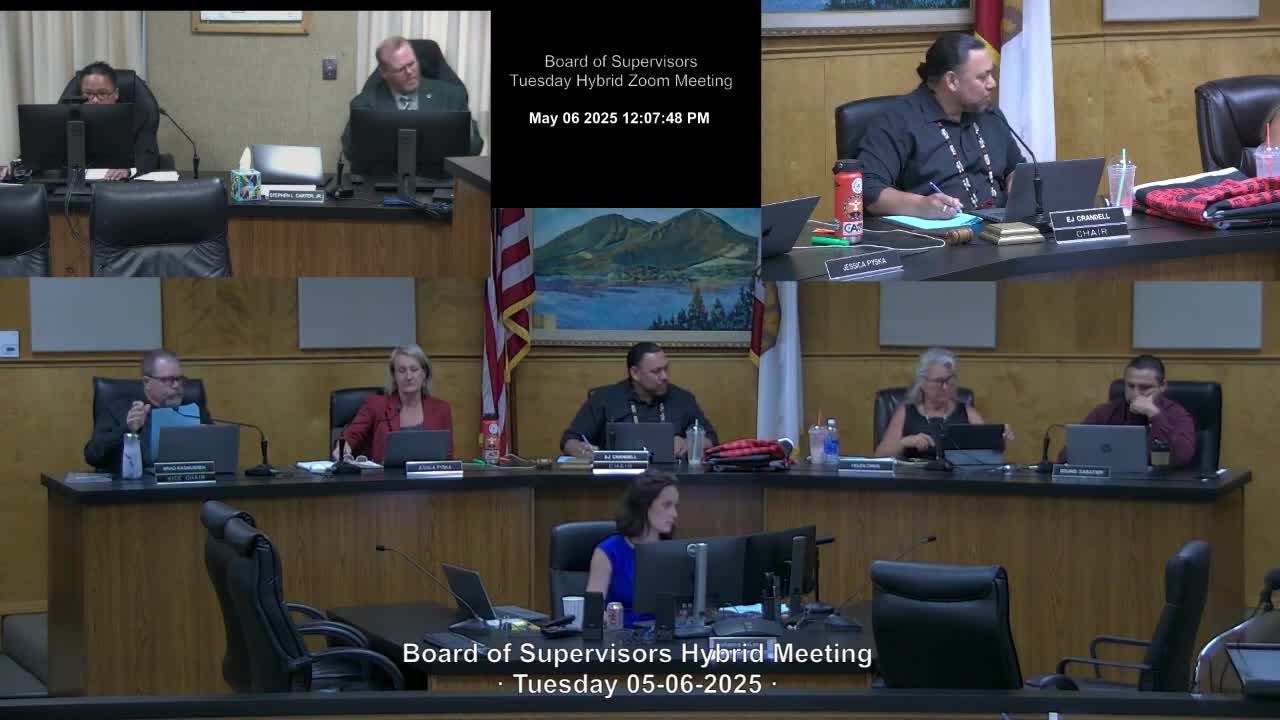
Board asks staff to study feasibility of a dedicated roads revenue measure; report requested in 3'to'6 months
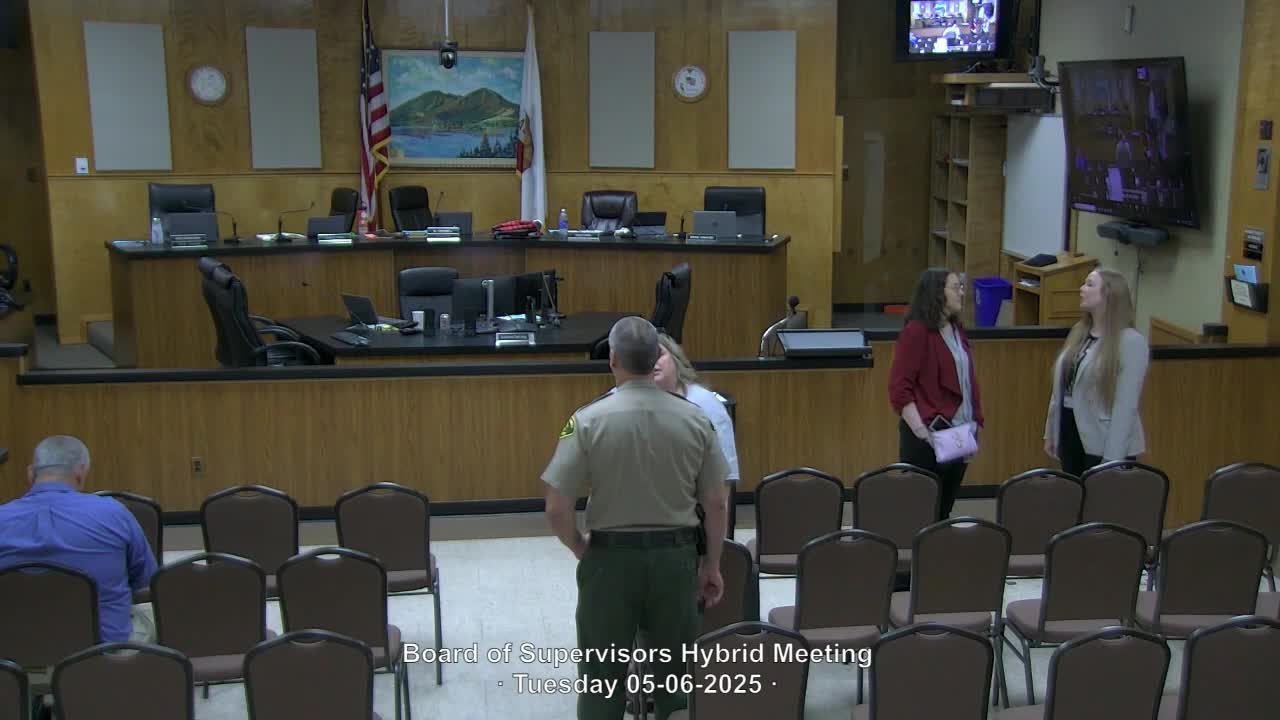
Board adopts findings and denies Nina Star LLC appeal after corrections to draft findings
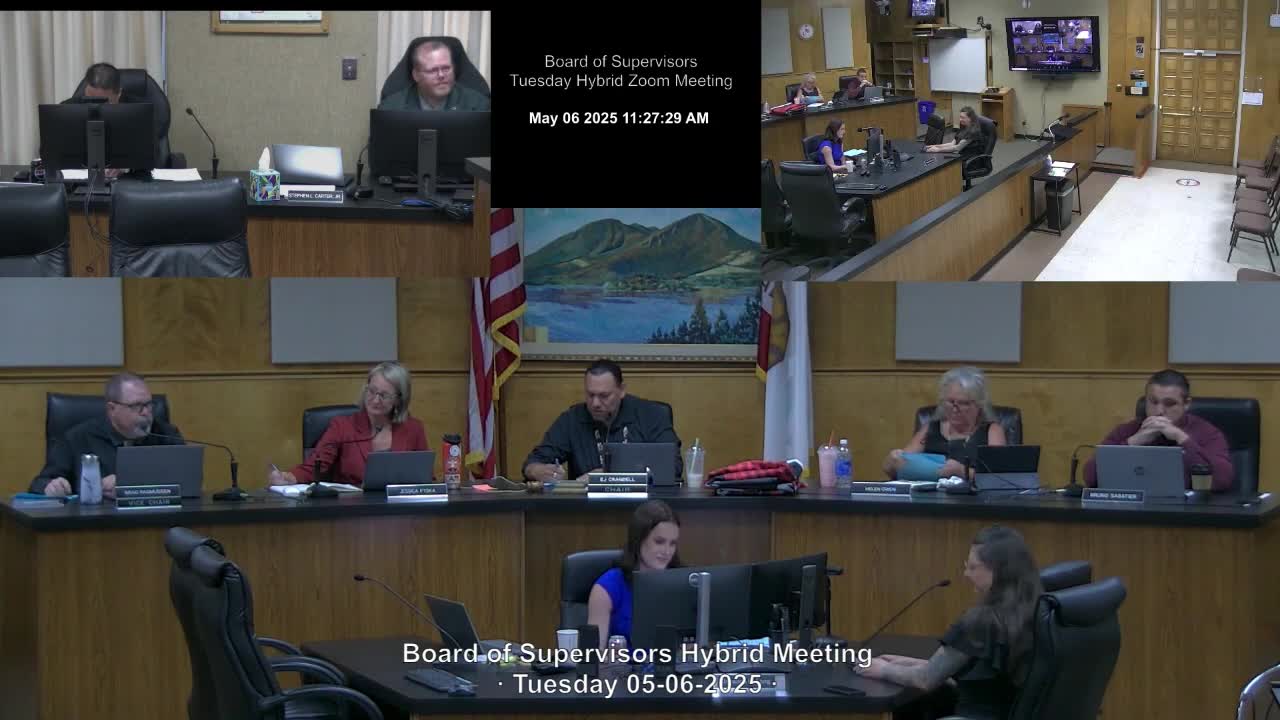
Board approves multiple behavioral-health contract amendments and expands substance-use treatment access; MAT contract approved after split vote
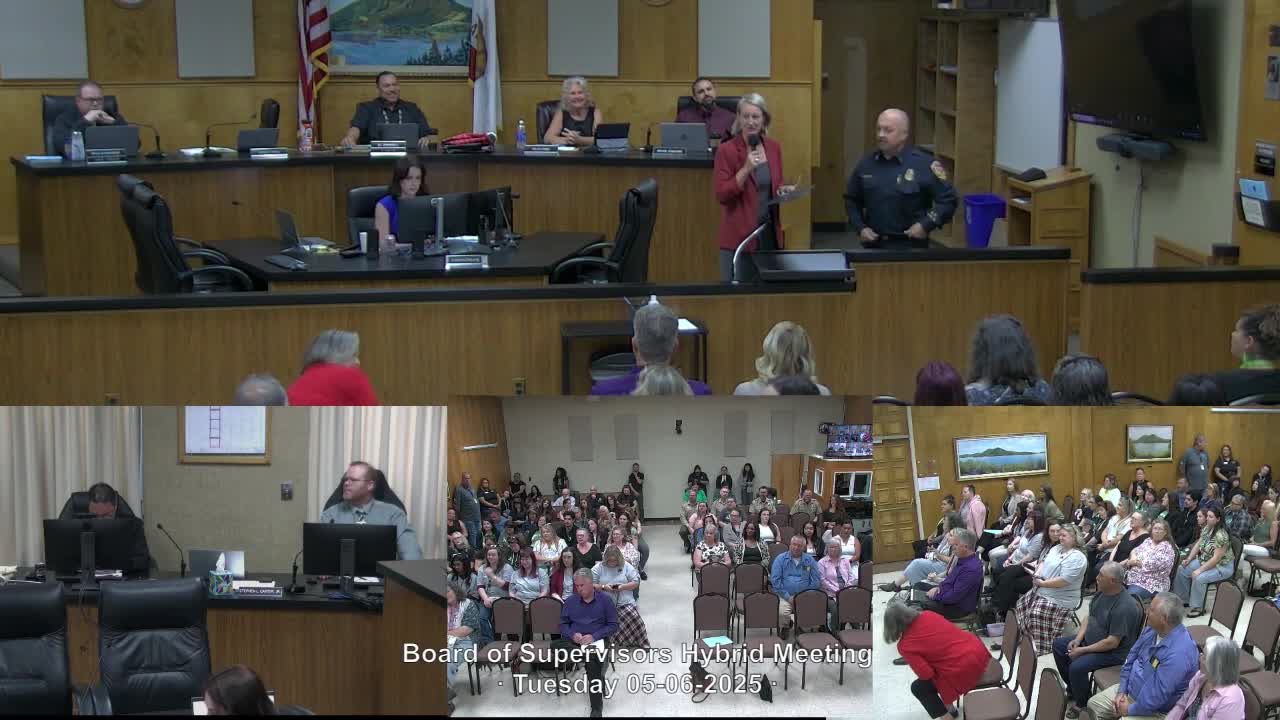
Board proclaims May 2025 Wildfire Community Preparedness Month; CAL FIRE and local partners urge year-round planning
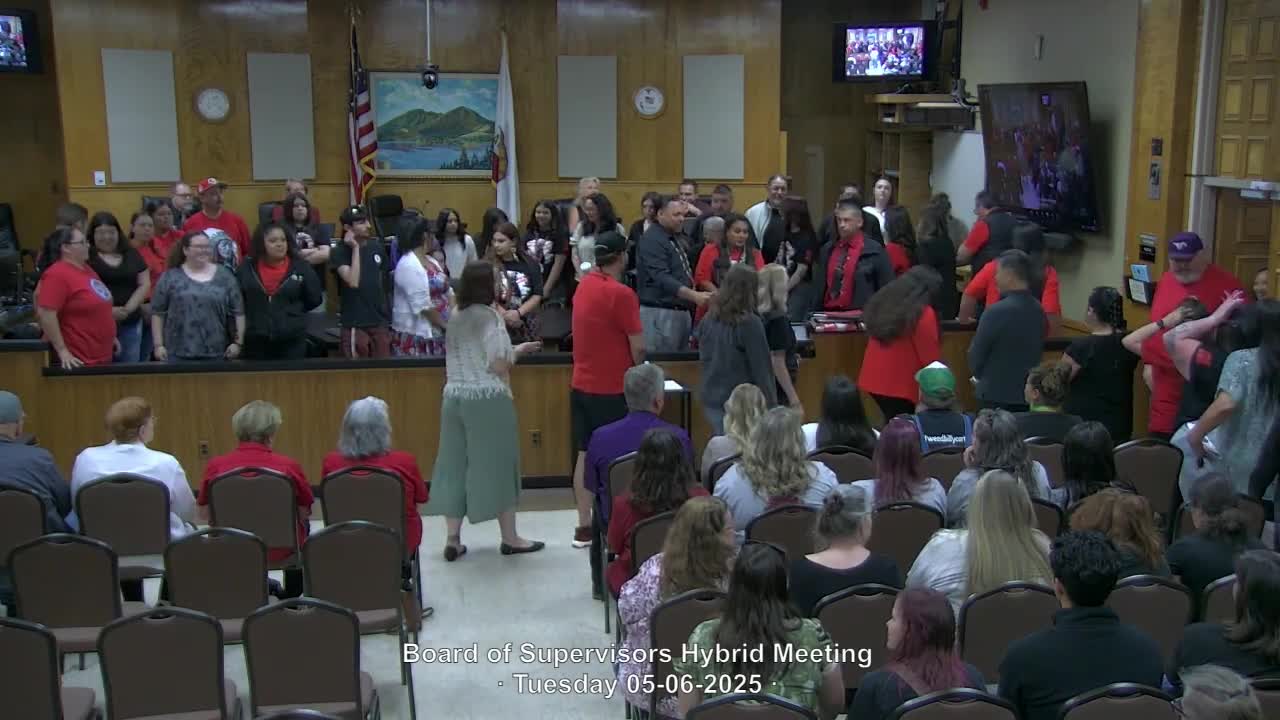
Lake County proclaims May 2025 as Month of Awareness for Missing and Murdered Indigenous People; tribal leaders and advocates speak

